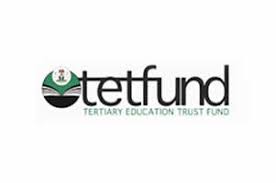
TETFund’s N185bn Expenditure on 35,000 Academics: Investment in Scholarship Pays Highest Dividends, by Rahma Oladosu
Learning, they say, is like a journey. The journey starts where the learning is now and ends where the learner is more successful. it is also believed that the end of the journey isn’t knowing more, it is doing more.
As we all know, the need for improved productivity has become universally accepted and it depends on efficient and effective training. It has further become necessary in view of advancement in the modern world to invest in training.
Over time, organisations have been embarking on training and capacity building for their employees so as to enhance productivity and increase the output of the organisations.
Taking a look at our education sector especially in the universities, many students here in Nigeria are not fully able to obtain the information and support they need to persevere and graduate. This owes largely to the absence of training and development of academic staff of these universities.
Undoubtedly, training and development programmes for academic staff have long-term profits that outweigh the immediate costs. Coordinated training and development of academic staff is important because all students, irrespective of their courses, deserve to have access to teachers or instructors who are knowledgeable and up-to-date on the policies, procedures, theories, and resources that help students thrive.
Everyone wants to feel knowledgeable at their jobs; hence providing academic staff with training and professional development can boost creativity in job performance. Neglecting training and professional development for academic staff affects not only students, but also the institution which bears the costs of reduced efficiency.
Thus the role played by academic staff training and development can no longer be over-emphasised. Academic staff training and development are based on the premise that staff skills need to be improved for organisations to grow.
So it is rather amazing that Nigeria’s sole administrator of education tax proceeds for institutions of higher learning in the country, the Tertiary Education Trust Fund (TETFund) has been funding the training and development of academic staff in quite a number of universities in the nation.
Just last month, the fund revealed that a total sum of N185 billion has been expended on the training of 35,000 Nigerian scholars in the last ten years. These scholars were drawn from public tertiary institutions across the country and trained by TETFund under its academic staff training scheme.
This Scholarship by TETFund for Academic Staff commenced in 2008 with the sole aim of training and up-scaling the educational capacity of the academic staff of beneficiary institutions. The staff are being sponsored for Masters, PhD and even those with PhD are also sponsored for post-doctoral programmes. All these are projects in the area of academics and it is actually the second project in expenditure after infrastructural projects of the Fund. These trainings are conducted both locally and in foreign countries, to enable the staff conduct and access cutting edge research facilities, quality teaching and learning and global networking.
To boost the overall performance of our tertiary institutions, it has however become very important to improve the training and development regime of academic staff in ways best suited for institutional culture and contexts in universities as this will definitely boost the creative performance of academics which also has implications for institutional reputations and most importantly, training and development enhance students to acquire the necessary information, guidance, and support needed to learn, persist, graduate, and achieve their aspirations through highly knowledgeable scholars.
35,000 scholars have so far benefitted from TETFund’s training and this is a very impressive number. This number will surely increase in the coming years as the Sonnny Echono-led management continues to priortise human capital development among Nigerian scholars.
